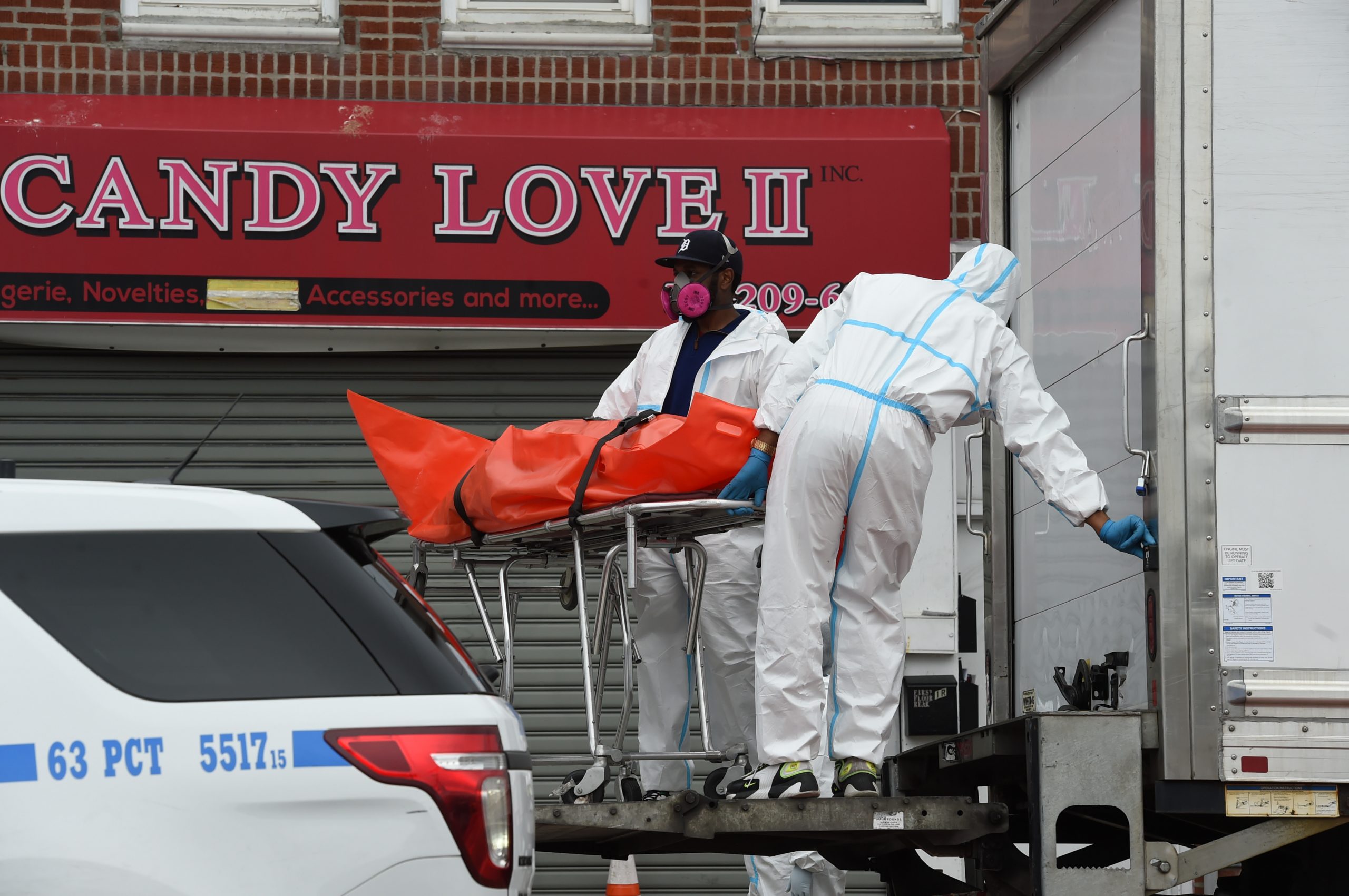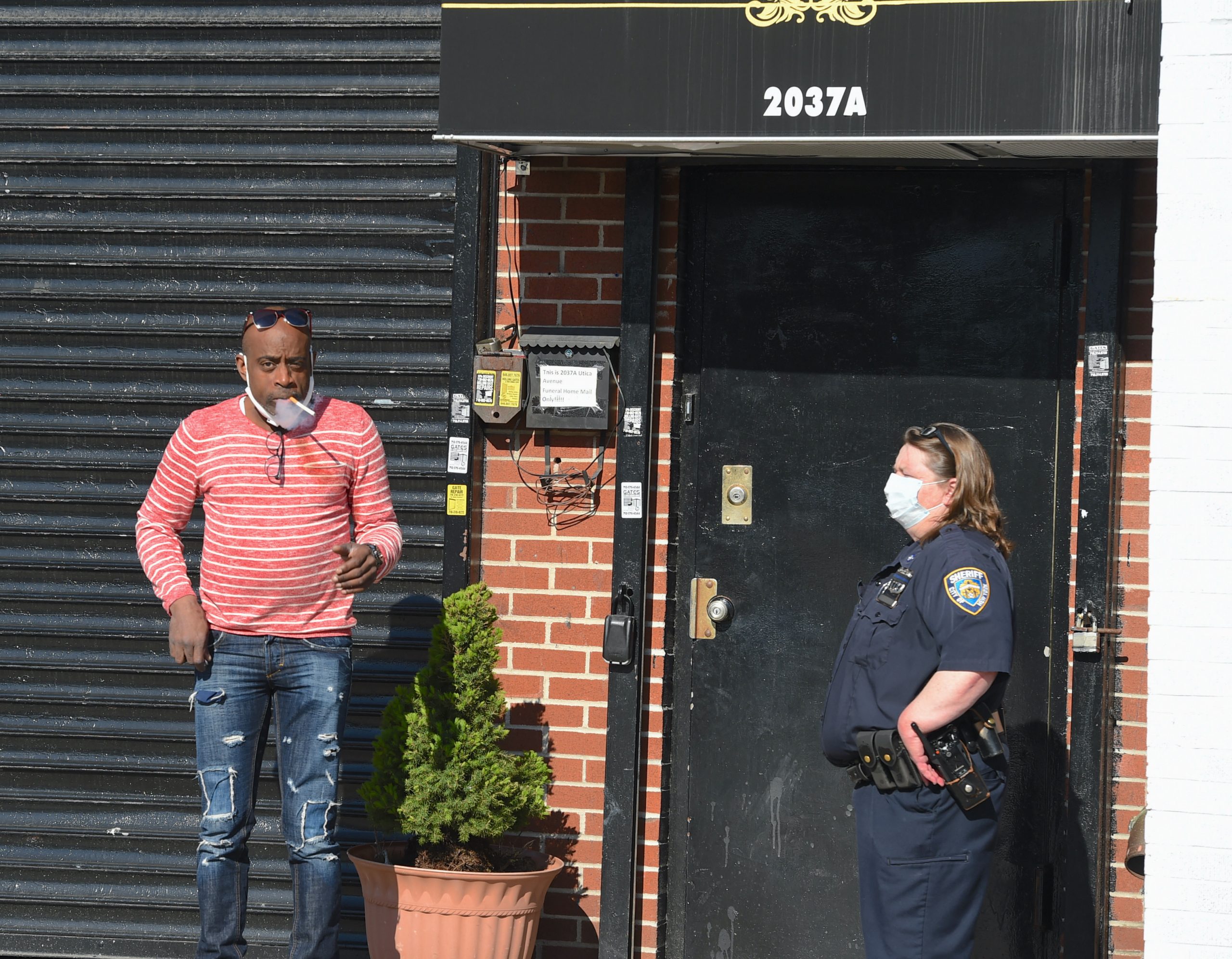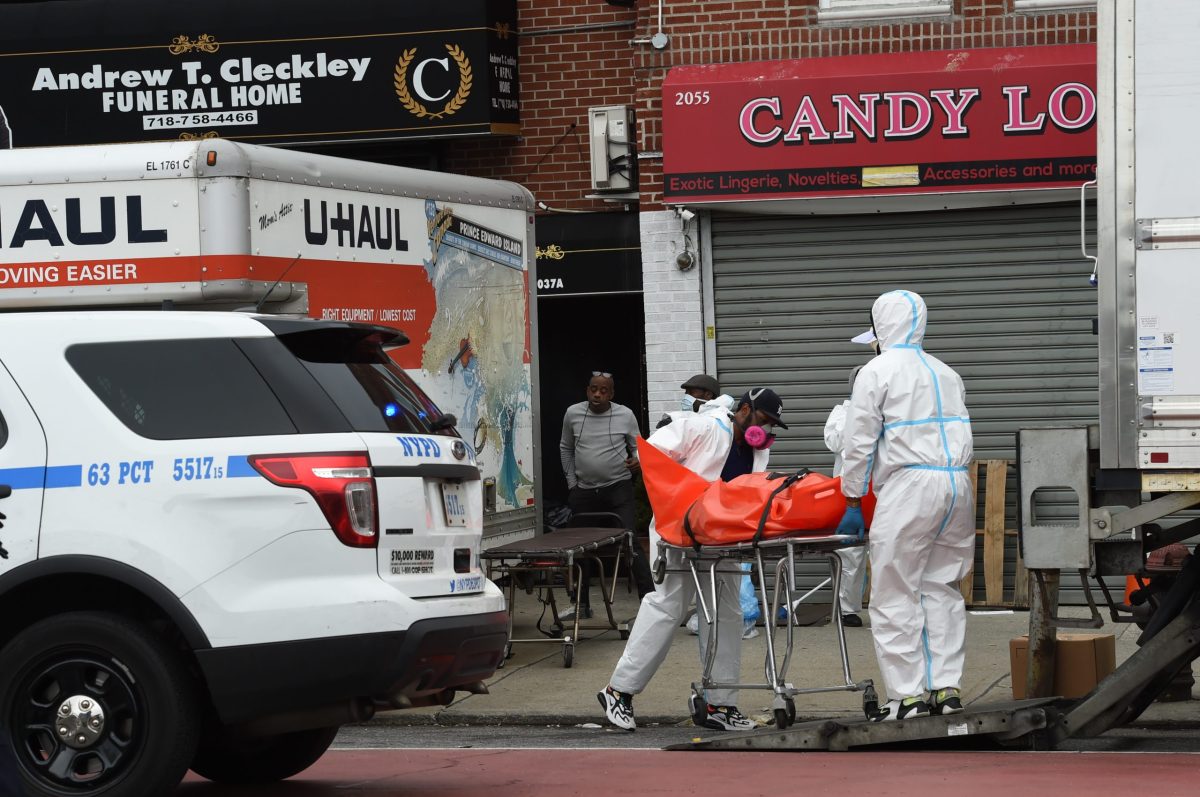The family of a COVID-19 victim whose body was placed in an unrefrigerated U-Haul truck is preparing to sue the two Brooklyn funeral homes responsible for allegedly mishandling the body.
Attorneys representing the family of Angela Rodriguez, who died on March 24 at age 77, say they plan to sue both DeKalb Funeral Services in Clinton Hill and Andrew T. Cleckley Funeral Home in Flatlands for improperly storing bodies that were supposed to be cremated.
Attorneys from the law firm Morgan & Morgan claim that Rodriguez’s granddaughter contracted with Dekalb Funeral Services to care for Rodriguez’s remains after her death. The family continuously called to check up on the status of the body, but received no update until the Medical Examiner’s Office notified them more than a month later that Rodriguez’s body had been one of the many discovered in an unrefrigerated U-Haul truck outside of Andrew T. Cleckley Funeral Home in Flatlands.
The lawsuit will hopefully give the family answers about how Rodriguez’s body ended up in the Flatlands truck, the family’s lawyer said.
“The best way to get answers is to file a lawsuit, so we will demand that records be preserved and provided to us,” said attorney Kathryn Barnett. “What this family has been through, no family should go through and a jury will have to decide what to do.”
The Dekalb Funeral Home picked up Rodriguez’s remains on April 4, and told the family on April 6 that a crematory was picking them up and they “shouldn’t worry, the body will be handled properly,” Barnett said. But over a month and countless calls later, the family was informed on May 7 that their loved one’s body was discovered in the Cleckley U-Haul truck.
During one call, staffers at the Clinton Hill funeral home “hung up” on the Rodriguez family, the lawyers allege.
The impending lawsuit comes nearly two weeks after police saw workers from the Flatlands funeral home transferring dozens of corpses from two U-Haul trucks into a large refrigerator truck on April 29. The bodies had been stored in the unrefrigerated trucks for weeks, residents said, causing a strong odor.
A police investigation later found that the funeral home had filled both U-Haul trucks, as well as the its chapel, up to the roofs with decomposing bodies. The Rodriguez family’s attorneys claimed that the Cleckley funeral home had 60 to 65 bodies at one point destined for crematories in New Jersey and Pennsylvania.
Funeral home officials claim that the bodies were supposed to be accepted by crematories, but those unnamed funeral companies failed to pick up and kept “canceling appointments for pick-up,” causing the Cleckley to store the bodies any way they could.
While no arrests were made, the State Department of Health suspended the Flatlands funeral home’s license on May 1.
While it remains unclear why the bodies were being brought from other funeral homes to Cleckley in the first place, Barnett alleged that the homes were holding onto the bodies for fiscal reasons and that their handling methods “violated [families’] trust.”
“They had no intention of fulfilling what they had promised,” she said.
The brother of the Cleckley’s owner has since said the home reached out to the city for help, but “nobody did anything until the police came here.”
Either way, Morgan said, his firm does not believe DeKalb and Cleckley are alone in their mishandling.
“We believe there are multiple funeral homes in this scam,” he said. “They didn’t have to take these remains, nobody forced them – so the claims are professional negligence, deceptive trade practices and we will seek punitive damages, [and] deter any funeral home from ever taking advantage of families again.”
Attempts to contact the Flatlands funeral were unsuccessful, and DeKalb declined comment.
Contributions by Jessica Parks






































